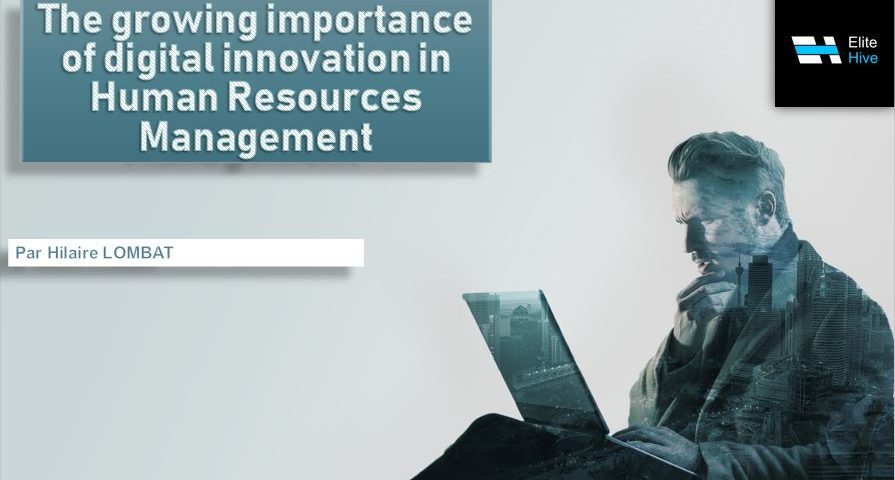- Du savoir faire au faire savoir.
- +237 6 61 51 51 31
- +237 6 94 25 39 19
- gitech@gitech.info
The growing importance of digital innovation in Human Resources Management

[Marketing Digital] [SEO] La pertinence et la notoriété d’une page web, critères majeurs d’un référencement réussi
23 août 2019
[Marketing Digital] [SEO] Les mots-clés et leur rôle dans votre SEO
30 août 2019User Review
( votes)Technology has completely redefined the role of a human resources manager. HR tech industry is at a stage of rapid innovation to keep pace with the changing demands of Human Capital Management. With ever-increasing importance of computer tools in human resource management and the ever-increasing computerization of personnel administration, and there are even HR Services online for people that need to implement this in their company.
would it not be necessary to redefine the basic skills of a human resource manager?
We will explore this question in a series of articles.
HR Fields impacted by digital changes
Human Resource is one of those industries which do not quite make their way into science fiction books, and no kid grows up thinking of revolutionizing the technology inside this particular market. Traditionally, HR was always viewed as a paper-intensive, non-innovative area, where salary decisions are made, people get hired or fired and where team building sessions are organized. But behind the scenes, the industry is changing and incorporating technology at a rapid pace, even if it wasn’t designed for HR to start with.
“Digital HR” is the new professional nomenclature for those HR departments that embrace these new technologies. To have a better understanding of how much of an impact technology has in human resources management, it seems accurate to present the disruptive technologies that are changing the HR field in dramatic ways.
Specific changes in HR processes
As we already stated before, no one can imagine a world without the internet nowadays, his smartphone to make his daily purchases, book his next trip or simply to make a bank transfer. But what about HR? Why and how do digital innovations impact HR processes?
how does HR become digital?
The entire HR process has been undergoing a digital transformation for the past ten years. With fully interconnected individuals sometimes using technologies often more advanced than those provided by the company itself, HRM had better not miss this digital evolution. We can list few examples digital changes in HR processes.
Digital recruitment innovation
One of the first major evolutions concerned the recruitment and more particularly the diffusion of job offers. From a completely paper model in the newspapers of our parents 15 years ago, we moved to a full web model with the creation of job boards. And all this has accelerated over the last 5 years with the massive arrival of social networks (LinkedIn, Viadeo, Twitter) to move us into the era of recruitment 2.0.
Today, the challenge HRDS are facing is mobile recruitment. The generation Z wants to be able to inquire and apply directly via their mobile without necessarily having to send their CV… That generation also requires more direct dialogue with recruiters, with recruiting managers. Far from the corporate communication of yesteryears, this generation knows the codes of advertising and wants to know what is behind promises of beautiful employer brands. This has upseted the tools currently used by recruiters (offer multicast platform, career page on social networks) but beyond that, it is also the traders that have changed, with the creation of HR community manager positions.
E-learning and online learning
New practices have been born with the digital innovations.
E-learning is defined as “education via the internet, network, or the standalone technology that allows a student-centric computer. E-learning is essentially the network-enabled transfer of skills and knowledge.” It’s an experience which gives the learner ultimate control. Online learning offers significant benefits to any organization that has the technology to support it and the wherewithal to invest in online learning infrastructure. Online learning is well suited to provide standardized training to an entire dispersed audience.
Cloud enabled Talent Management
Talent management is an HR-specific term that is the key to understanding HR’s role. We groom and develop talent. The combination of talent management system functions with cloud- computing provides a powerful alternative to the asset-heavy legacy systems which require more than one system to perform the same functions as a talent management system. The cloud version of talent management is a viable alternative to using several systems to handle the full range of HR functions.
The next article will focus on how a HRM can help his organization manage these technological changes.
Thank you for taking the time to read this article.
To follow my news, you can join me on my other social networks:
- Facebook : https://www.facebook.com/HilaireLombatOfficiel
- LinkedIn : https://www.linkedin.com/in/hilaire-lombat/
For any reactions do not hesitate to leave a comment.
How useful was this post?
Click on a star to rate it!
Average rating 5 / 5. Vote count: 1


